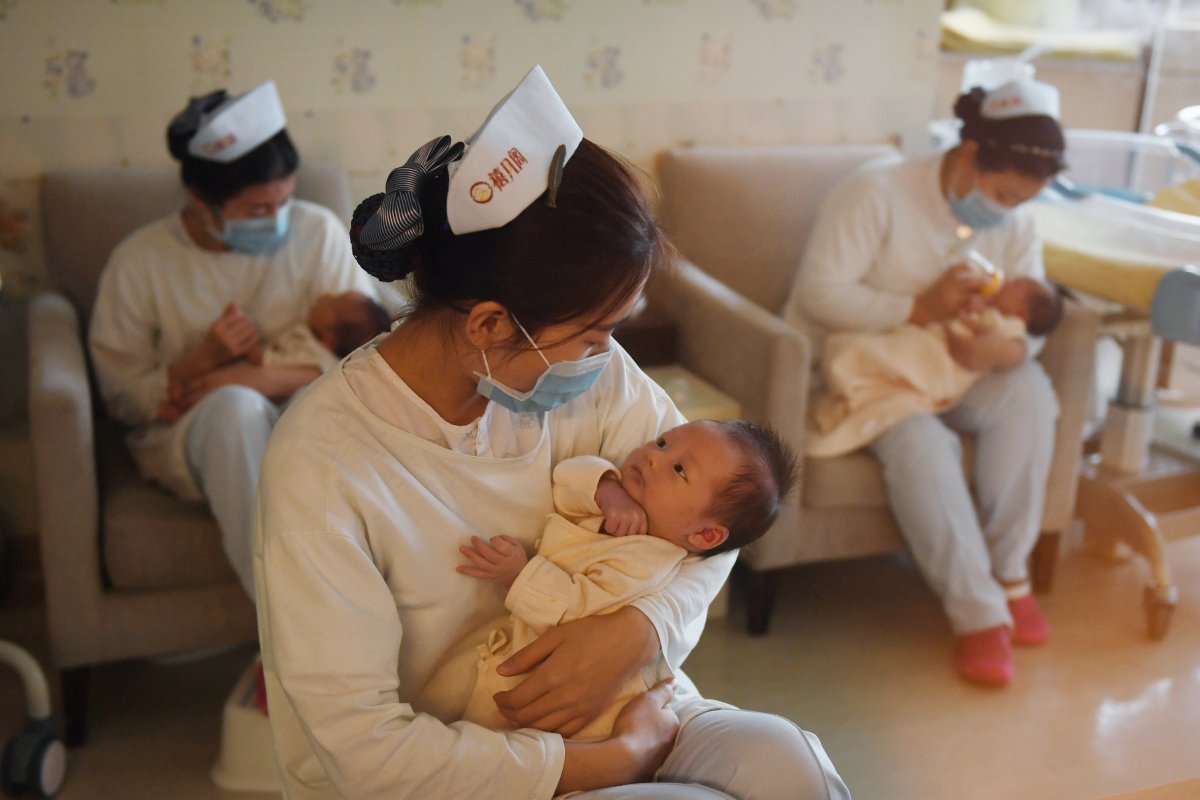There needs more efforts to secure women's reproductive rights, and China vows to keep working with the international community to further promote the development of the population affairs both inside and outside the country.

Nurses holding babies at the Xiyuege Centre, or "Lucky Month Home", in Beijing. (Photo: AFP)
The global reproductive rights movement, which started in the 1960s, has changed the lives of hundreds of millions of women, yet there is still a long way to go before all the people can claim the rights and choices, according to a newly released report.
The launch event of the report, State of World Population 2019, was co-hosted in Beijing on Thursday by the United Nations Population Fund China, or UNFPA China, and the Department of Population Monitoring and Family Development of the National Health Commission of China.
The efforts of the movement have increased the percentage of the world's women using modern contraceptives from 24 percent in 1969 to 58 percent in 2019, and reduced the average number of births per woman from 4.8 in 1969 to 2.5 in 2019.
Yang Wenzhuang, a division director of the National Health Commission, introduced China's achievements in population affairs and said the reproduction inspection rate has been increased from 56.7 percent in 1991 to 96.6 in 2017, and the number of women's deaths from pregnancy-related causes has decreased from 120 per 100,000 live births in the 1970s to 19.6 in 2017.
However, reproductive rights are still out of reach for many women, including more than 200 million women who want to prevent a pregnancy but cannot access modern contraceptive information and services, the report said.
Babatunde Ahonsi, UNFPA representative in China, said gender inequality and humanitarian crises also limit the ability of women to freely exercise reproductive decisions.
Yang said the challenges China is facing include aging and a low fertility rate, and increasingly prominent demographic structural problems.
Ahonsi thus called for joint efforts to reach "zero unmet need for contraception, zero preventable maternal deaths, and zero violence or harmful practices against women and girls by 2030".
China has implemented a variety of policies to improve population-related affairs and more efforts are expected in the future, Yang said.


